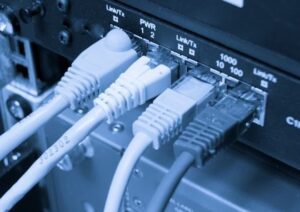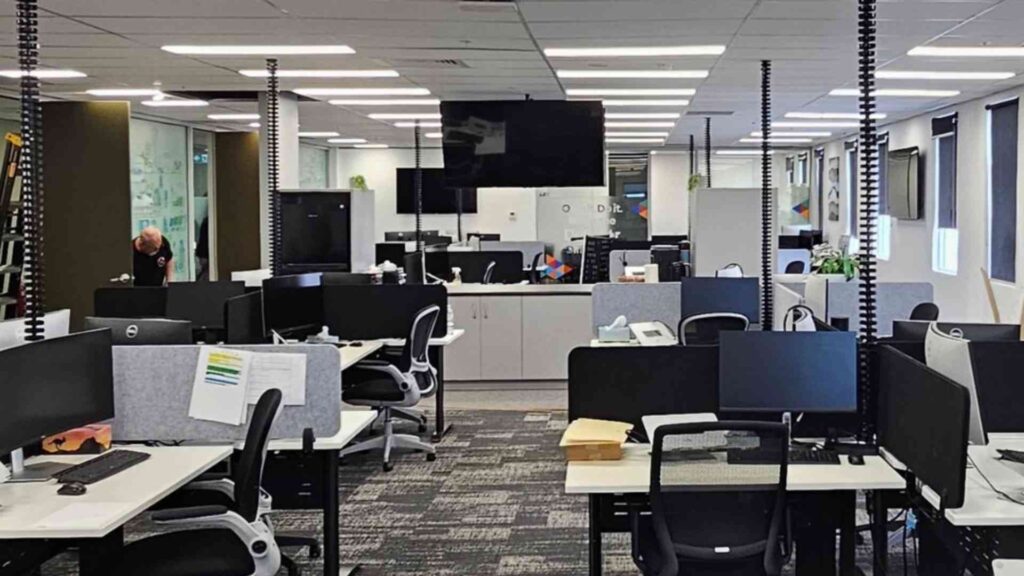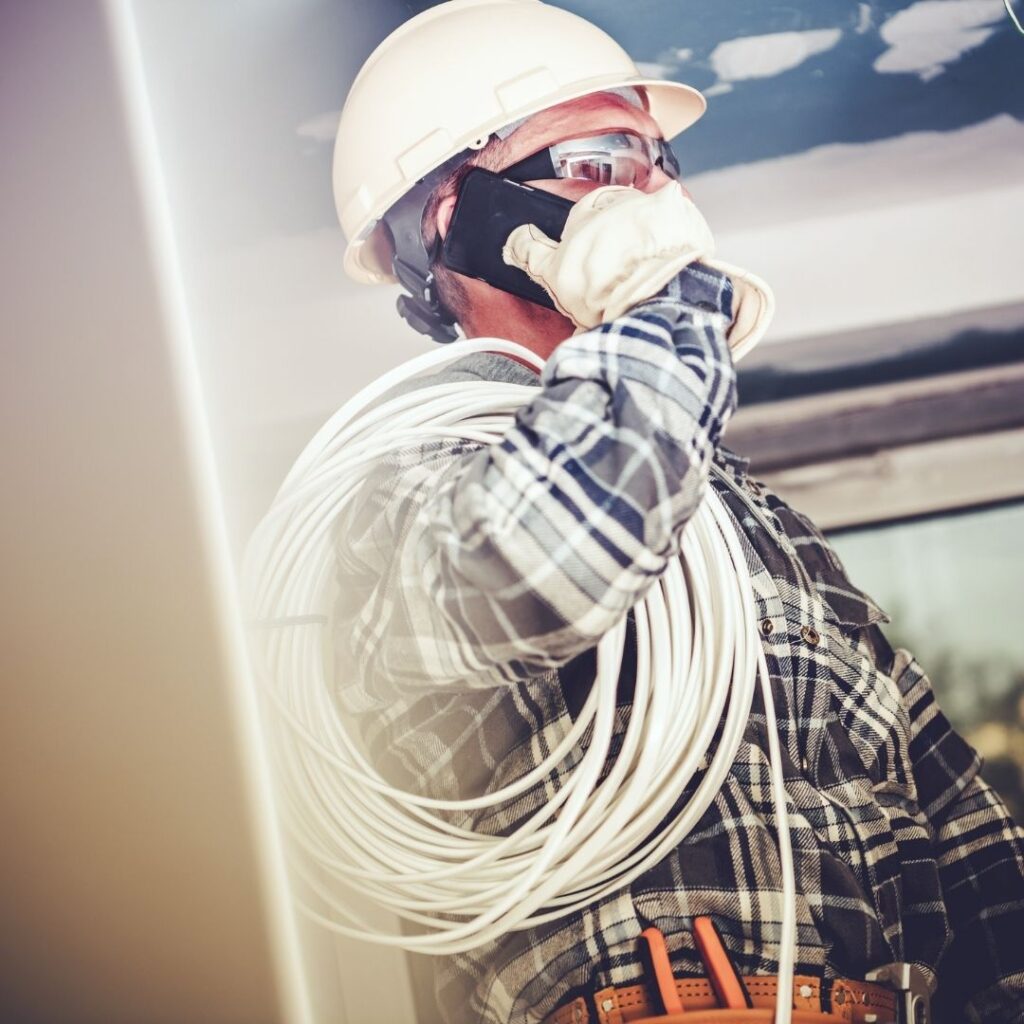In today’s digitally-driven business environment, the importance of a skilled data cabler cannot be overstated. These specialized professionals create the vital pathways that keep our businesses connected, our data flowing, and our communications seamless. Whether you’re setting up a new office, upgrading an existing network, or troubleshooting persistent connectivity issues, understanding the role of a data cabler will help you make informed decisions about your infrastructure needs.

Understanding the Critical Role of a Data Cabler
A certified data cabler performs much more than simple cable installation. These trained professionals design, implement, and maintain the structured cabling systems that form the backbone of modern network infrastructure. Unlike general electricians who may handle basic low-voltage work, a qualified data cabler specializes in creating optimized pathways for data transmission.
The work of a data cabler encompasses various essential functions that ensure network reliability and performance. From planning cable routes to terminating connections with precision, every aspect of their work impacts your network’s efficiency. For complex projects that require both data infrastructure and power solutions, many businesses find value in combining Commercial Electrician Services with specialized data cabling expertise.
Essential Services Provided by Professional Data Cablers
Professional data cabler services cover a wide range of technical solutions designed to meet different organizational needs. Structured cabling system installation represents one of their core offerings, creating organized and efficient cable pathways that support current requirements while allowing for future expansion. These systems typically include carefully planned networks of cables, patch panels, and connection points that serve multiple hardware uses throughout a facility.
Network infrastructure upgrades form another critical service area. As technology advances, many organizations need to transition from older cabling standards to more advanced solutions. A knowledgeable data cabler can guide you through important decisions, such as understanding the difference between cat5e and cat6a, helping you select the most appropriate cabling for your specific requirements and budget.
Troubleshooting and repair services represent another vital aspect of a data cabler’s work. When network issues emerge, these professionals use specialized equipment and methodologies to diagnose problems ranging from faulty terminations to damaged cable runs. Their expertise often proves invaluable in resolving persistent connectivity issues that frustrate users and hamper productivity.
Testing and certification services ensure installed systems meet industry standards for performance and reliability. A professional data cabler doesn’t just connect cables; they verify that every connection delivers optimal performance through rigorous testing protocols. This attention to detail separates qualified professionals from amateur installations that may lead to ongoing problems.
The Importance of Proper Data Cabling Infrastructure
Many organizations underestimate the critical nature of quality data cabler services until problems surface. Poor cabling infrastructure can create numerous operational challenges that affect business performance. Chronic network instability and unexpected downtime often trace back to substandard cabling installations. These interruptions not only frustrate employees but can lead to lost productivity and revenue.
Performance bottlenecks represent another common consequence of inadequate cabling. Even with high-quality networking equipment, inferior cabling can restrict data transfer speeds, creating unnecessary limitations for bandwidth-intensive applications. A professional data cabler ensures your physical infrastructure doesn’t become the weak link in your network performance.
Troubleshooting network issues becomes significantly more challenging with poorly installed cabling systems. Without proper documentation, labeling, and organization, identifying and resolving problems consumes valuable time and resources. The upfront investment in quality data cabler services pays dividends when maintenance or expansion becomes necessary.
Premature system replacements often result from cutting corners on cabling infrastructure. While quality installations may cost more initially, they typically last through multiple equipment refresh cycles, providing better long-term value. For industrial environments, combining Industrial Electrician Services with expert data cabling ensures both power and data infrastructure work in harmony to support operational requirements.
Selecting the Right Data Cabler for Your Project
Choosing a qualified data cabler requires careful evaluation of several important factors. Proper certifications serve as the foundation for quality work, with credentials such as Open Cabler License and manufacturer-specific certifications demonstrating technical competence. These qualifications ensure the professional understands current standards and best practices.
Experience represents another critical consideration when selecting a data cabler. Reviewing their portfolio of completed projects provides insight into their capabilities, particularly for installations similar in scale and complexity to yours. Seasoned professionals bring valuable problem-solving skills developed through diverse project experience.
The quality of testing equipment indicates a data cabler’s commitment to thorough work. Professionals invest in proper testing tools to verify installation quality rather than relying on assumptions or superficial checks. This equipment allows them to certify that installations meet specified performance standards.
Understanding of evolving industry standards separates exceptional data cabler professionals from average providers. The field continues to advance with new technologies and methodologies, requiring ongoing education to maintain expertise. Companies like Lightspeed Electricals employ data cabling specialists who combine technical knowledge with practical experience to deliver reliable solutions.
Common Data Cabling Mistakes and How to Avoid Them
Even with professional data cabler services, certain pitfalls can compromise network performance if not addressed. Mixing cable categories within the same network creates inconsistency that can lead to performance issues. While combining different standards might seem cost-effective initially, it often results in the entire network defaulting to the lowest common denominator for speed and performance.
Poor cable management practices create numerous problems that affect long-term reliability. Cables crammed into tight spaces without proper organization risk damage from pressure or abrasion. Disorganized installations also make maintenance and troubleshooting significantly more challenging and time-consuming.
Ignoring bend radius specifications represents another frequent mistake in cabling installations. Each cable type has specific limitations regarding how sharply it can bend without causing signal degradation. A qualified data cabler understands these requirements and plans cable routes accordingly to maintain optimal performance.
Inadequate future-proofing often leads to expensive retrofits as network needs grow. Professional data cabler services include planning for expansion by incorporating spare capacity and selecting cabling that exceeds current requirements. For large-scale projects, coordination with a Level 2 Service Provider Sydney may be necessary when work intersects with electrical supply systems.
The Data Cabling Installation Process Explained
Professional data cabler services follow a systematic approach to ensure quality results. The process begins with comprehensive site assessment, evaluating existing infrastructure and understanding current and future requirements. This planning phase identifies potential challenges and opportunities for optimization.
Design planning translates requirements into practical solutions, determining optimal cable pathways, termination points, and equipment locations. A skilled data cabler balances technical requirements with practical considerations to create efficient, maintainable systems. This phase often includes creating detailed documentation that guides installation and future modifications.
Cable installation involves carefully running and securing cables according to the planned design. Professionals use appropriate techniques to protect cables from damage while maintaining proper separation from potential interference sources. Attention to detail during installation prevents numerous common network issues.
Termination represents a critical phase where cables connect to jacks, patch panels, and equipment. Proper termination techniques ensure reliable connections that maintain signal integrity. A professional data cabler performs these connections with precision, using appropriate tools and testing each connection.
Testing verifies that installed systems meet specified performance standards before putting them into service. Comprehensive testing identifies any issues that require correction, ensuring the delivered system performs as intended. This quality assurance step separates professional installations from amateur work.
Final documentation provides a valuable reference for future maintenance and expansion. Accurate as-built diagrams, test results, and inventory records simplify troubleshooting and modifications. This documentation becomes increasingly valuable as facilities undergo changes over time.

Data Cabling Solutions for Specialized Environments
Different operational environments present unique challenges that require tailored data cabler solutions. Commercial offices typically need neat, unobtrusive cabling that supports high-density workstations while maintaining aesthetic appeal. Professional installations balance technical requirements with workplace appearance considerations.
Industrial facilities demand rugged solutions that withstand harsh conditions while maintaining reliable performance. These environments often require specialized cabling types and protective measures to ensure longevity. Coordination with Industrial Electrician Services ensures both power and data infrastructure meet operational demands.
Healthcare institutions rely on cabling systems that support critical systems with maximum reliability. These environments often have strict requirements regarding cable types, pathways, and redundancy to ensure uninterrupted operation of essential equipment and services.
Educational campuses need scalable infrastructure to accommodate growing technology demands across multiple buildings. A professional data cabler designs systems that support current needs while allowing cost-effective expansion as requirements evolve. For those interested in technical careers, the guide on How to Become an Industrial Electrician provides insights into related fields.
Emerging Trends in Data Cabling Technology
The field of data cabler services continues evolving with new technologies and methodologies. Higher speed standards constantly emerge to support advancing network technologies, requiring professionals to stay informed about the latest developments. These advancements often influence cable selection and installation techniques.
Power over Ethernet (PoE) technology has gained significant adoption, delivering both data and power over single cables. This innovation simplifies installations for devices like security cameras, wireless access points, and VoIP phones. A knowledgeable data cabler understands PoE requirements and limitations to ensure reliable implementations.
Fiber optic expansion continues growing, particularly for backbone infrastructure and long-distance runs. While copper cabling remains prevalent for horizontal runs, fiber offers advantages for certain applications. Understanding when to specify fiber requires technical expertise and practical experience.
Intelligent cable management systems represent another emerging trend, using software to monitor and manage physical layer infrastructure. These solutions provide valuable visibility into cabling systems, simplifying maintenance and troubleshooting. Professional data cabler services increasingly incorporate these tools to enhance system manageability.
Maintaining Your Data Cabling Infrastructure
Professional data cabler services extend beyond initial installation to include ongoing maintenance solutions. Periodic performance testing helps identify potential issues before they cause disruptions, using specialized equipment to verify cable integrity and performance characteristics. These proactive measures often prevent costly downtime.
Labeling and documentation updates ensure records remain accurate as modifications occur over time. Maintaining current documentation simplifies troubleshooting and future expansion efforts. A qualified data cabler can audit existing systems and bring documentation up to date when necessary.
Cable management improvements enhance system reliability and maintainability. As networks grow and change, cable organization often deteriorates without proper attention. Professional services can reorganize and secure cables to restore optimal conditions.
Capacity planning helps organizations prepare for future needs by analyzing current utilization and projected growth. This proactive approach identifies requirements before they become urgent, allowing for planned, cost-effective expansions. A skilled data cabler provides valuable insights to guide these planning efforts.
Cost Considerations for Data Cabling Projects
Several factors influence pricing for professional data cabler services. Project scope significantly impacts costs, with the number of drops and overall complexity determining labor requirements. Larger installations typically benefit from economies of scale compared to smaller projects.
Cable type selection affects material costs, with higher-performance options like Cat6a commanding premium prices compared to older standards. However, these investments often prove worthwhile by supporting future needs and avoiding premature replacement. Understanding the difference between cat5e and cat6a helps make informed decisions about these investments.
Building structure characteristics influence installation difficulty and associated costs. Challenging environments with limited accessibility or special requirements typically increase labor time and project complexity. A professional data cabler can assess these factors during the planning phase.
Testing requirements vary depending on project specifications and performance expectations. More comprehensive testing protocols increase project costs but provide greater assurance of system quality and reliability. These investments often prevent costly problems that emerge after installation.
While price represents an important consideration, focusing solely on upfront costs often leads to higher long-term expenses. Quality data cabler services may cost more initially but typically deliver better value through reliable performance and extended service life. For comprehensive solutions, Lightspeed Electricals combines technical expertise with professional service to meet diverse cabling needs.
Data Cabling Standards and Compliance Requirements
Professional data cabler services adhere to established standards and regulations to ensure quality and compliance. Australian Communications and Media Authority (ACMA) regulations govern telecommunications cabling work, establishing requirements for installer qualifications and work practices. Compliance with these regulations ensures installations meet minimum legal standards.
ISO/IEC standards provide detailed specifications for structured cabling system design and implementation. These internationally recognized standards cover various aspects of cabling infrastructure, from performance requirements to installation methodologies. A qualified data cabler understands how to apply these standards to different project scenarios.
Manufacturer specifications establish requirements for maintaining product warranties and achieving optimal performance. Proper installation techniques and handling procedures help ensure cables perform as intended throughout their service life. Professional installations follow these guidelines to protect client investments.
Industry best practices represent accumulated knowledge from experienced professionals that goes beyond minimum standards. These practices address real-world challenges and solutions that enhance system reliability and maintainability. Seasoned data cabler professionals incorporate these lessons into their work.
When to Engage a Data Cabler Versus a General Electrician
While some Electrician Western Sydney professionals handle basic low-voltage work, specialized data cabler services prove essential for certain scenarios. Large-scale network installations benefit from dedicated data cabling expertise, particularly when involving complex structured cabling systems spanning multiple areas or buildings.
High-speed data infrastructure requires specialized knowledge to ensure optimal performance. As network speeds increase, proper installation techniques become increasingly critical to maintain signal integrity. Professional data cabler services understand these requirements and implement appropriate solutions.
Fiber optic installations demand specific skills and tools beyond typical electrical work. Proper handling, termination, and testing of fiber optic cables requires specialized training and experience. These sensitive components benefit from professional installation to ensure reliable performance.
Complex structured cabling systems with multiple connection points and pathways require careful planning and execution. A qualified data cabler designs these systems to optimize performance while maintaining flexibility for future modifications. Their expertise helps avoid common pitfalls that compromise system effectiveness.
Future-Proofing Your Data Cabling Investment
Professional data cabler services incorporate several strategies to extend the useful life of cabling infrastructure. Planning for bandwidth growth involves installing higher-category cables than currently required, creating headroom for future needs. This forward-looking approach often proves more cost-effective than incremental upgrades.
Incorporating spare capacity provides flexibility for expansion without requiring disruptive retrofits. Additional conduits, pathways, and termination points accommodate growth as needs evolve. These provisions simplify future modifications and reduce associated costs.
Choosing scalable solutions ensures infrastructure can adapt to changing requirements. Modular designs and flexible components allow for cost-effective expansion and reconfiguration. A professional data cabler understands how to balance current needs with future possibilities.
Thorough documentation preserves institutional knowledge about cabling infrastructure, simplifying future work. Accurate records help technicians understand existing systems when performing maintenance or modifications. This documentation becomes increasingly valuable as time passes and original installers move on.

Final Considerations for Selecting Data Cabler Services
Choosing quality data cabler services ensures your network infrastructure delivers reliable performance that meets current and future requirements. Professional installations comply with all relevant standards while providing flexibility for growth and changes. The upfront investment in proper cabling infrastructure typically yields long-term dividends through reduced maintenance costs and extended service life.
For organizations seeking comprehensive data cabling solutions, Lightspeed Electricals offers professional services tailored to diverse needs. Their team of qualified data cabler professionals combines technical expertise with practical experience to deliver optimal results. From initial design through installation and maintenance, they provide solutions that support organizational objectives while ensuring reliable network performance.


